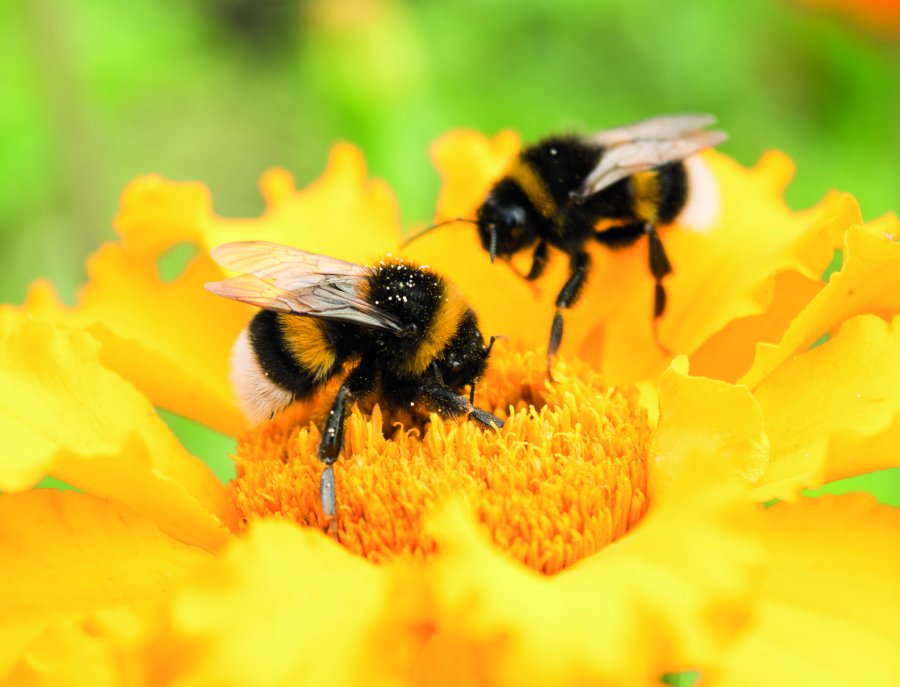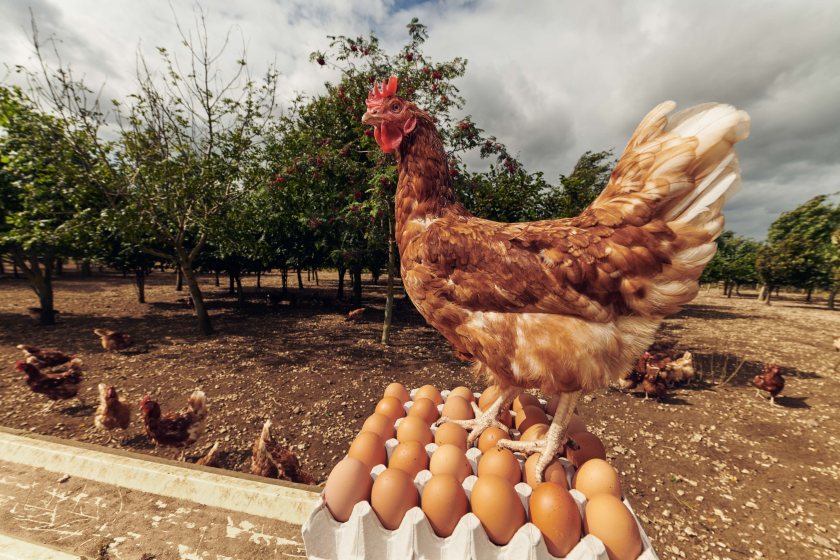
Morrisons ‘Bee Friendly Farmers’ initiative has helped free range producers to plant specially blended flower mixes to attract and maintain bumblebee populations.
The retailer's producers have been planting an acre of bee friendly wildflower mixes per 16,000 birds as part of the Range Enhanced Sustainable Farming Group initiative.
It has been running for more than eight years but has grown since Morrisons launched their ‘Chuckle Eggs’ range in November 2020.
This came about following a producer meeting where there was discussion about how farmers could be better rewarded for their good environmental work.
‘Chuckle Eggs’ are sold in packs of 12 eggs, and the scheme is part of Morrisons’ wider ‘For Farmers’ range, with 12p per egg being paid directly back to the farmer.
Initially the range was set-up to promote the sale of medium eggs, but as a result of the large volume of eggs in the marketplace, the retailer recently launched it in large as well.
The project has proven popular, with more than £20m having been raised through the ‘For Farmers’ range, which can be used by producers to enhance environmental initiatives, such as ‘Bee Friendly’ farms.
‘Bee Friendly Farmers’
The ‘Bee Friendly Farmers’ scheme, or ‘Project Pollinator’ as it was previously known, began in 2013 to encourage farmers to plant bee friendly mixes on their ranges.
Initially the project aimed for 40% of all eggs to be sourced from bee friendly farms, but this was achieved in 2017 and now almost 100% are from bee friendly farms.
Whilst the main aim of the project was to boost bee numbers, there was also the added goal of increasing awareness of the plight of bumblebees through creating the brand.
‘Chuckle Eggs’ packaging includes detailed information about how farmers are making a difference to bee populations, which has helped to attract purchases from consumers who want to make a positive environmental choice whilst shopping.
At a time when the wider public are taking a greater interest in the provenance of their food, the ‘Bee Friendly Farmers’ scheme has gained added media coverage and increased the awareness of eggs.
The Bumblebee Conservation Trust say that over a third of bumblebee species have declined by more than 70%, but surveys carried out on the farms with bee friendly planting have seen bee numbers increase by up to 55% year-on-year.
Gill Perkins is CEO of the Bumblebee Conservation Trust, she said: “The loss of habitat has been the primary reason for the decline of the bumblebee.

"The work of Morrisons’ producers in making their farms ‘bee friendly’, ensuring that land is set aside for their habitat, and providing bumblebee identification courses has been an amazing success.”
On the farm
When a producer joins the scheme, they designate an area equivalent to at least 5% of the range for the creation and management of bee friendly habitats.
This way, the scale of egg production on the farm relates directly to the size of the habitat.
Farmers have been doing this in increasing numbers over the last five years and there are now 169 acres of bee friendly strips being planted across Morrisons’ producer base.
The idea is that as habitat grows so will bumblebee numbers, a theory which is backed up by the impressive data collected by the surveys carried out on the bee friendly areas.
Morrisons have worked with Hurrells Seeds this year to develop a seed mix that will establish successfully in different areas of the country to reflect the different growing conditions.
It does not matter where on the farm that the mix is planted, and many producers choose to incorporate it as part of the Countryside Stewardship Scheme.
Mixtures include a variety of different wildflowers, but the most notable is Phacelia which flowers prolifically in a display of purple flowers whilst Red Clover and Sainfoin are establishing themselves.
A handful of other species make up the mixes, including Alsike Clover and Birdsfoot Trefoil.
Bees are suffering particularly from a problem known as the ‘June Gap’, because there is a real shortage of nectar rich species that flower during that month.
The Phacelia is a significant inclusion in the plots because it flowers in the heart of June and goes some way to closing the ‘gap’.
Charles Rook is a 55,000 bird free range producer near Market Weighton, in East Yorkshire, who has supported Morrisons’ ‘Bee Friendly Farmers’ initiative.
He said: “We drilled our first bee friendly mix over five years ago and have not regretted the decision since.
"The mix was easy to drill and established exceptionally well giving a diverse range of species and then flowered with a vibrant array of colours within the first year.”
Mr Rook also said that there was a notable boost to bee numbers: “Almost immediately we witnessed an increase in insect and bee activity, and during our monthly bee walks we were able to identify twelve different species.
"Yesterday they saw a queen B Lapidaries, a large mainly black bee with a red tail that was in very good condition.”
